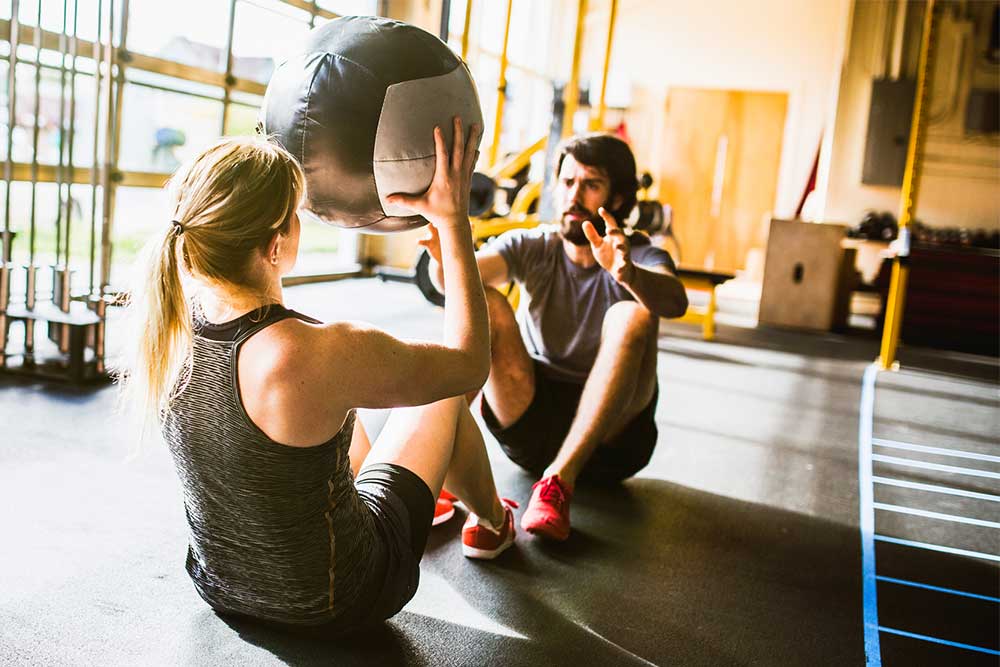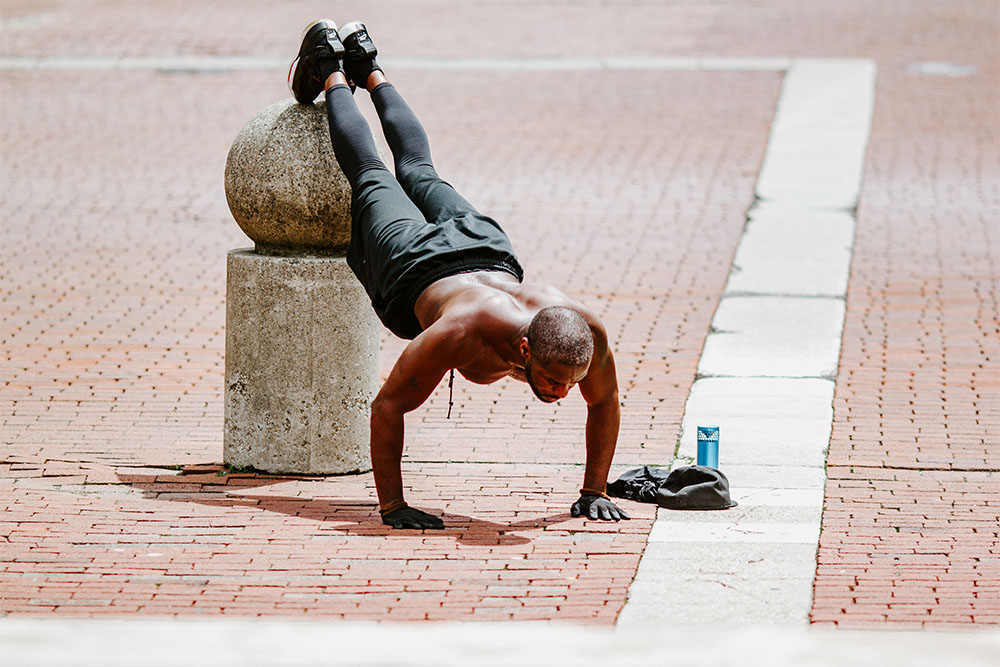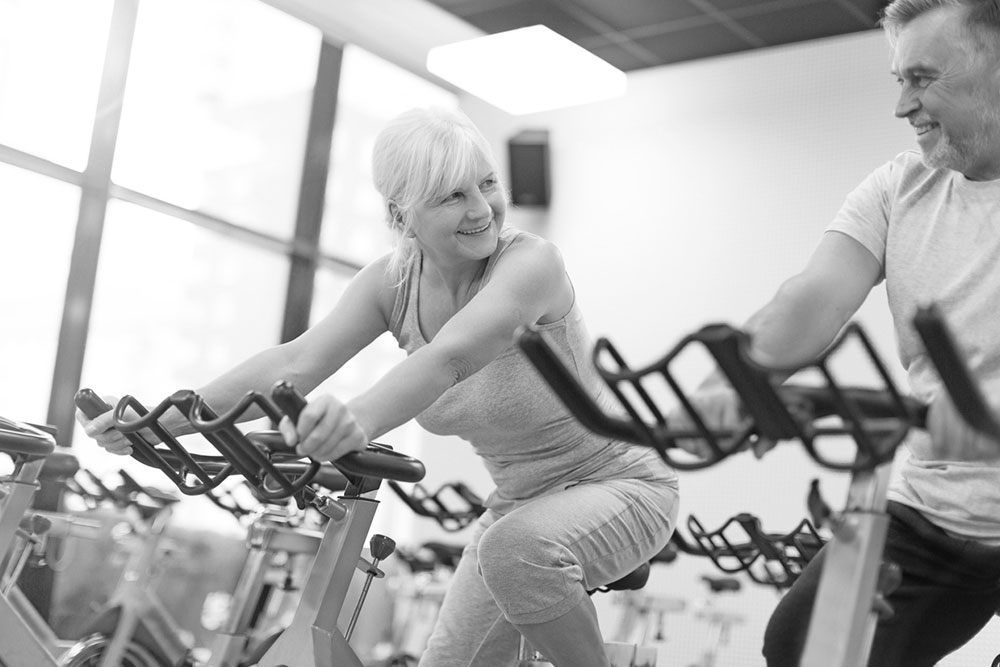Exercise is for everyone.
In fact, I would argue that exercise becomes more important as you get older. It helps stave off disease and illness, enhances functional ability, and ultimately promotes longevity – which is pretty important for everyone if you ask me.
How does exercise effect longevity?
Getting older typically occurs alongside a number of distinct physical changes, including a loss of fitness, declines in muscular strength, muscular endurance, and lung capacity, as well as reductions in neuromuscular control, balance, and coordination.
All of which result in a loss of independence, combined with an increased risk of disease and illness.
As a result, research has indicated that exercising on the regular is associated with around a 30% reduction in ‘all-cause mortality’ (which is a fancy way of saying death). Importantly, this association remains no matter your age, occupation, gender, or ethnic background [1].
Pretty cool, right?
However, I should note that while 30% seems like a lot, it needs to be considered with several other lifestyle factors (such as your diet and genetic makeup). All of which means that it will equate to you being alive for an extra 1-5 total years.
But what you need to remember is that this comes with improvements in health and function and the maintenance of independence – which means that you will be spending your last few years at home and in good health, rather than in a hospital bed.
Exercise effect on brain health and memory
In conjunction with these potent effects on physical health, exercise has also been shown to have an impact on the health of your brain too.
Both aerobic exercise and weight training have been shown to increase the production and secretion of circulating growth factors and neurotrophins – two important compounds that promote the development of neural connections and brain tissue.
Within this, it can also increase the production of numerous neurotransmitters and hormones that help regulate mood.
As a result, it is well established that regular physical activity can help delay age related declines in cognition, as well as neurodegenerative pathologies such as Alzheimer’s disease. Moreover, it has also been shown to improve cognitive function and memory, while reducing risk of depression and increasing emotional wellbeing [2].
In short, it improves every aspect of physical and mental health – and you should probably be doing more of it.
What exercise routine provides the best longevity?
It should come as no surprise, but if your goal is to improve every aspect of your health to maximize longevity and increase your healthspan in its entirely, just one type of exercise is not going to cut it.
You are going to need a combination of cardiovascular exercise and weight training [3].
Most exercise guidelines across the world suggest that you should maintain a minimum of 150 minutes of aerobic exercise per week to improve health and longevity.
However, this is the minimum.
In fact, additional health benefits are typically observed as you get closer to 300 minutes per week, which is what you should be striving for.
Don’t Resist Resistance Training
In addition to aerobic activity, resistance training offers the perfect way to stop many of the physical declines that come with age, such as a loss of strength, muscle mass, balance, coordination, and functional ability.
This means that adding in 2-3 weights training sessions per week is integral to your longevity.
These should include a variety of exercises that take your joints full their full rang of motion and actively replicate activities of daily living – things like squats, deadlifts, lunges, presses, and rows, just to name a few.
Is endurance or HIIT better for longevity
Now, something that is worth touching on relates to the type of aerobic exercise you choose to do – as in, high intensity interval training (HIIT for short) or moderate intensity continuous training (i.e. long jogs at a comfortable intensity).
There is some evidence to suggest that HIIT training can cause greater increases of blood flow to the brain than moderate intensity exercise. It has also been shown to improve reaction time and cognitive function to a larger degree [4].
Please note that this does not mean that lower intensity exercise is not effective – just that HIIT appears to be slightly more effective at improving brain health.
However, it also places more of a toll on your body.
As a result, I would recommend aiming for 2-3 HIIT sessions per week, and then complimenting that with 2-3 longer duration lower intensity exercise sessions. This could include a nice walk, a gentle bike ride, or even a casual swim.
The idea here is to get in some exercise while allowing your body to recover from your more strenuous training.
Related article: The Best Workout Combination: Endurance Training and HIIT
Tips to increase longevity through exercise
If your goal is to not only live for a long time, but also maintain a high degree of health and function then exercise is a must – but how you choose to create an exercise routine is of particular importance.
And while there is no single best way to approach it, there are some certain tips you can implement to make sure you are doing all the right things:
Tips
- Strength train 2-3 times per week: I have already outlined the importance of lifting weights for longevity, but just to reiterate – it is incredibly important. Aim for 2-3 sessions per week with ~48 hours between each session to maximize recovery.
- Avoid Training to Failure: with your strength training sessions, try and keep 2-3 reps in the tanks every single set. This has been shown to build strength to the same degree as pushing yourself maximally, but places less wear and tear on your joints – which is important if you want to be training for a long time.
- Perform 2-3 HIIT sessions per week: these should go for about 30 minutes and focus on getting your heart rate up. I like using a 1:1 work rest ratio for longer intervals (i.e., 60s on 60s off, or 30s on, 30s off) and 1:3 for shorter, more intense bouts (i.e., 15s on, 45s off).
- Perform 2-3 lower intensity cardio session per week: these should be performed on the days you don’t perform HIIT and should be considered an active recovery. Think low impact exercise like swimming and cycling and keep it at intensity where you can maintain a comfortable conversation the whole time. These should go for at least 45 minutes.
- Choose things you like doing: lastly, make sure that you actually enjoy the exercise you are doing. This means implementing gym exercises you enjoy, as well as sticking with your favorite modes of cardio. If you want to be exercising well into your nineties, then trust me when I say you want to enjoy it.
And that is it.
While these tips might seem simple, I can assure you that integrating them into your weekly exercise routine is going to be a great way to enhance your longevity in a big way.
Take Home Message
Exercise really is the fountain of youth.
Not only does it make your fitter, but it also increases health, staves off disease and illness, improves mental wellbeing and cognitive function, enhances functional capacity, prevents age related declines in function, and adds years to your life.
Amazing does not even begin to cover it.
If your goal is to live a long and healthy life, exercise needs to be a part of it – so what are you waiting for?
References
- Gremeaux, Vincent, et al. “Exercise and longevity.” Maturitas 73.4 (2012): 312-317.
- Di Liegro, Carlo Maria, et al. “Physical activity and brain health.” Genes 10.9 (2019): 720.
- Pedersen, Bente Klarlund. “Which type of exercise keeps you young?.” Current Opinion in Clinical Nutrition & Metabolic Care 22.2 (2019): 167-173.
- Kao, Shih‐Chun, et al. “Comparison of the acute effects of high‐intensity interval training and continuous aerobic walking on inhibitory control.” Psychophysiology 54.9 (2017): 1335-1345.
You Might Like:
How to Workout to Promote Longevity
Exercise is for everyone. In fact, I would argue that exercise becomes more important as...Ways to Improve Your Longevity Genes
Humans are currently living longer than ever before. With advancements in healthcare, technology, and knowledge,...Now Is the Time to Reset Your Health
Even though we are living in the most abundant time in human history, chronic disease...A Trick To The Foundation Of Youth?
Julia C. Basso The hypothalamus is an almond-sized structure that sits in the lower, middle...Improve Fitness To Lengthen Healthspan
By Sara Thompson, M.Sc. in Exercise Science Neural specificity is how well the brain can...Lengthen Healthspan Through Exercise
Julia Basso – PhD Youth is a sought after thing. Doctors, scientists, and many others...The post How to Workout to Promote Longevity appeared first on ForeverFitScience.










No comments:
Post a Comment